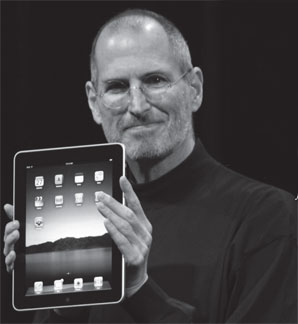|
How Sri Lankan novel reveals:
Steve Jobs's philosophical stance
By Indeewara THILAKARATHNE
Ronald Barthes is considered as a major literary theorist who
revolutionised the theoretical outlook of the concepts of literary
'work' and 'Text'. Central to his thesis is the seminal distinction that
Barthes made between the 'Text' and 'Work'.
 He explained his theoretical framework in an academic essay entitled
"From Work to Text". In the essay Barthes states " ...it is best to
speak of literary text rather than work because the former suggests, via
its allusion to the interweaving of different strands of material (text
originally meant cloth-fabric), the way in which each text is caught up
in a web of He explained his theoretical framework in an academic essay entitled
"From Work to Text". In the essay Barthes states " ...it is best to
speak of literary text rather than work because the former suggests, via
its allusion to the interweaving of different strands of material (text
originally meant cloth-fabric), the way in which each text is caught up
in a web of
Intertexuality. That is, if every sign gestures towards every other
sign, then so does each text ''
He further explains the differences between a literary text and a
literary work:
"...there are a number of differences between a literary text and a
literary work. He warns, firstly, against the dangers of basing such a
distinction on chronology, determining that the "work is classic, the
text avant-garde" : "there may be 'text' in very ancient work, while
many products of contemporary literature are in no way texts".
Rather, he contends that where the work is synonymous with an actual
book which one can hold in one's hands or lodge in a library (that is,
it occupies an actual physical space) or even place on an examination
syllabus, the text is what he describes as a "methodological field" . By
that, Barthes means that the text is a "process of demonstration" and
that it "speaks according to certain rules".
In other words, "the Text is experienced only in an activity of
production" . The text is not the "decomposition of the work, it is the
work that is the imaginary tail of the Text" .Indeed, the text is not
confined to the space occupied by a single work. Rather, it "cannot stop
. . . its constitutive movement is that of cutting across (in
particular, it can cut across the work, several works". Secondly, the
text cannot be constrained by outmoded generic classifications or
distinctions between literature and non-literature or between 'good' and
'bad' literature. Texts possess a "subversive force in respect of the
old classifications" and may even be, in some cases, "limit-works" ,
that is, which go to the "limit of the rules of enunciation "
"The opposition may recall (without at all reproducing term for term)
Lacan's distinction between 'reality' and 'the real': the one is
displayed, the other demonstrated; likewise, the work can be seen (in
bookshops, in catalogues, in exam syllabuses), the text is a process of
demonstration, speaks according to certain rules (or against certain
rules); the work can be held in the hand, the text is held in language,
only exists in the movement of a discourse (or rather, it is Text for
the very reason that it knows itself as text); the Text is not the
decomposition of the work, it is the work that is the imaginary tail of
the Text; or again, the Text is experienced only in an activity of
production. It follows that the Text cannot stop (for example on a
library shelf); its constitutive movement is that of cutting across (in
particular, it can cut across the work, several works)."
I cited Ronald Barthes's theoretical framework to explain how that
artistic novel emerges out of complex contemporary realities brought
about by myriads socio-economic changes. A skilful and matured writer
can make use of extraordinary characters, their behavioural patterns as
well as their philosophical stances particularly on life.
Steve Jobs's death compels us to read the contemporary Sinhalese
novel Agni Chakra which was translated into English by Ranga
Chandrarathne as Circles of Fire in a different light. Circles of Fire
subtly enunciates Steve Jobs's philosophical stance in the chapter 27.
Although the novel is not about Steve Jobs and his philosophy of life,
Jobs's philosophical stance has been cited to stress the reality of life
that the protagonist Prof.Saddhamangala Sirinivasa experiences towards
the end of the novel. In the Chapter 27 of the novel commences with the
following description by Prof. Saddhamangala Sirinivasa after reading a
newspaper articles on Steve Jobs:
" I was interested in the lecture recently delivered by an American
millionaire. I wrote an extract of the lecture which appeared yesterday
in a newspaper. He says that the idea that one who should die soon must
help him by making most important decisions in life. He says that what
remains, at the end, of the multitude of hopes that get negated before
death, is the essence.
I felt that the fact that he stressed at the Convocation of the
University of Stafford in USA assomething which was made based on my
life.
He is Steve Jobs, the Chief Executive Officer of Apple Computers and
Pixar Animation Studios. He who stimulated my curiosity about the
question ‘How to face death’, is among the top ten millionaires in the
computer world today.
Point of view
His statement compelled me to look at wealth and prosperity from a
different point of view. I also earned a considerable fortune in this
island nation. Comparing his and my wealth, I am like a fire-fly before
the sun. On certain points, I have similarities with him. He entered the
Reed College after I had entered university. But, within six months, he
had left the University.
Steve says that the backdrop for his leaving the University had been
there even before he was born. That was because his mother was
unmarried. It was at this point, similarities between him and I
commenced. He was brought up by a lawyer and his wife.
He bade farewell to the University realising that the couple’s entire
wealth would have to be spent on his university fees.
After leaving the university, Steve could not find accommodation.
When he went to a friend, he had to spend the night on an uncomfortable
bed. He earned his living by selling empty oca-Cola bottles while
sleeping on a bare floor and would walk seven miles on foot to the Hari
Krishna Temple to have a sumptuous meal.
Courage
I was amazed beyond imagination on two counts; first how he mustered
the courage to reveal his miserable past at the convocation, secondly,
the similarities of life experiences between him and me. But I have put
my past into a wooden box and nailed it covering it with concrete.
 I think that the past cannot emerge as the spirits the exorcists
would seal in cigarette tins and float in the sea. I think that the past cannot emerge as the spirits the exorcists
would seal in cigarette tins and float in the sea.
How hard had I tried to conceal it throughout my life? Were the
laments of my spirit piercing through the concrete that emerged as
nightmares?
The ‘Apple’ company which Steve founded in a garage with a friend
twenty years ago had become a company with 4000 employees with assets
worth two billion dollars. His brilliant creation ‘Macintosh Computer’
was released to the market when Steve was thirty. But, during this
period, Steve was sacked from the company following a dispute with a
manager he himself recruited.
Expulsion
He considers the expulsion of him from the Apple as a wonderful
privilege in his life. He says that releasing from the burden of
leadership and responsibilities turned an extremely creative chapter in
life.
I, once again, began to realise the Buddhist saying that ‘the life
would be happy not by acquiring things but by renouncing them’. I
quickly searched for Ratnaweera’s e-mail address.
I could not remember where I had jotted it down in small letters in
the vehicle. Steve who had obtained an honorary Degree from the Super
University of life though notearned a university degree, had started the
two companies, ‘Next’ and ‘Pixar’ within the next five years he spent in
leisure. I know that the ‘Pixar’ which produced the world’s first
animation film became the best studio for animation films in the world.
Steve had, once again, joined Apple after Apple bought over ‘Next’. A
turning point in Apple’s resurgence was the technology developed by
‘Next’.
The next story was directly connected to me. It was ‘cancer’ and
‘death’. Steve had also got a cancer. I really did not know Steve’s
state of mind when it was revealed following a test that he had got an
incurable cancer. The doctors had said that he would live only for six
months.
I still don’t have to face this situation.
The details of his biopsy were also given in the report. The doctors,
who examined a specimen of cells from the pancreas, concluded that it
was a rare cancer which can be cured by surgery. Steve recovered
completely following the surgery.
A silver line of hope flashed again in my mind. I thought I would
visit America and would test myself for cancer. I was afraid that it
would be a fruitless exercise. Now I was trying to find out a new
dimension to death based on Steve’s remarks on death.
He says none would like death and even those who like to go to heaven
are afraid of death. I thought whether it was not death that opened the
door to Nirvana or heaven. But can we make up our minds for death to
open the door for any kind of liberation?
Steve points out that the death is the greatest invention in life as
it changes it. I thought of what I was living for.
Another question arose in me was that should we die in the same body
we were born in. It was the final remark of Steve’s lecture which
injected life into my fainting heart and weak mind.
There he emphasised the need to identify the hope at the bottom of
the heart. All other requirements would be nullified when one identified
the real want according to one’s intuition. ”
Inventor
Steven Paul “Steve” Jobs is an American inventor and entrepreneur. He
was co-founder, chairman, and chief executive officer of Apple Inc and
was also the co-founder and previously served as chief executive of
Pixar Animation Studios.
In his childhood, he had to face numerous hardships compelling him to
leave the university. But he earned a degree from the university of
life.
The life of the protagonist of Agni Chakra (Circles of fire) Prof.
Saddhamangala Sirinivasa commenced his life amidst hardships and
deprivations.
As in the case of Steve Jobs, doctors warn him of a cancer.
Saddhamangala began to reflect on his past when he was experiencing
death. However, he could not realise it as he was murdered.
It is the realisation of life which reminds one of one’s real
natures. It is only one realised this truth that man becomes complete.
Now most of the rich visit India in search of this and no one can
rule out the fact that novel can also open up avenues for the
realisation of life although there may be diverse definition of novel.
The novel Agni Chakra (Circles of fire) stands out among contemporary
Sinhalese fiction for offering the readers with such a rare philosophy
of life although it is made of semi-fictional characters and incidents. |

